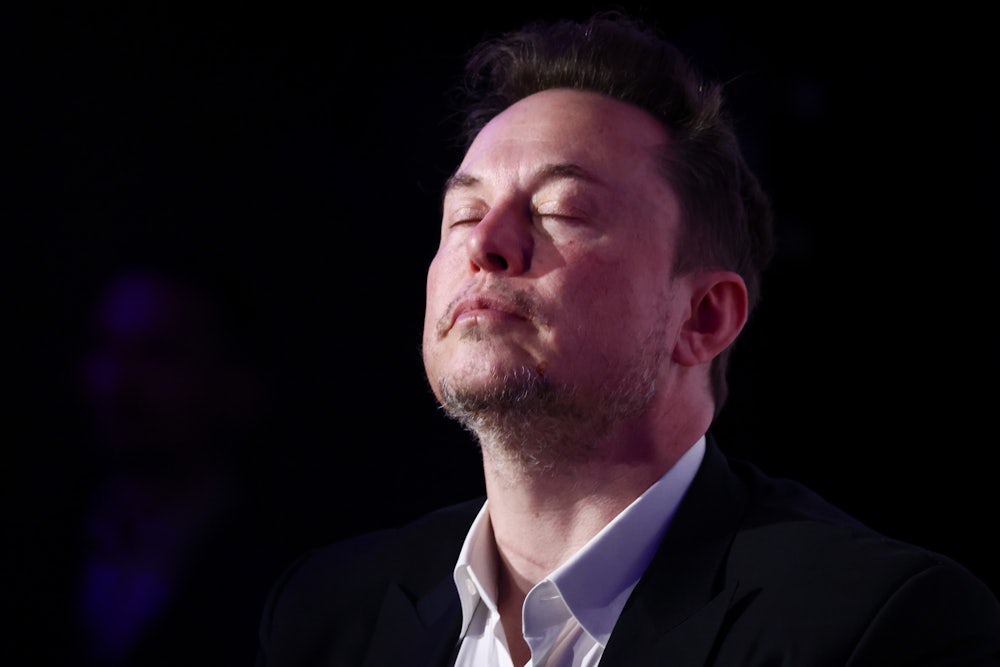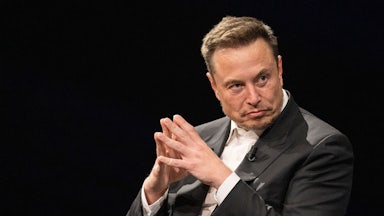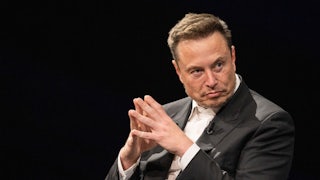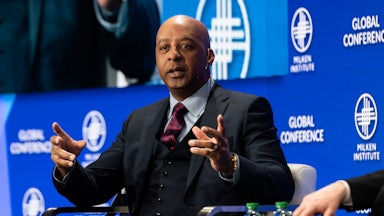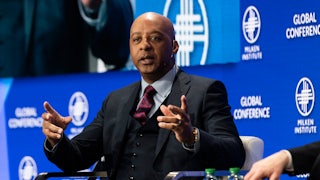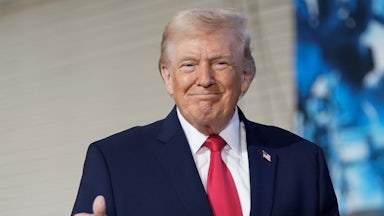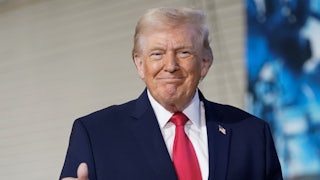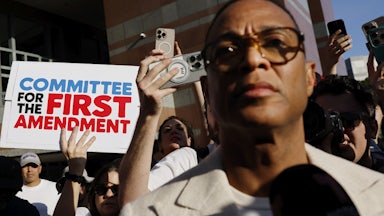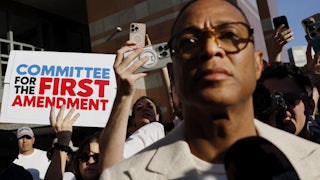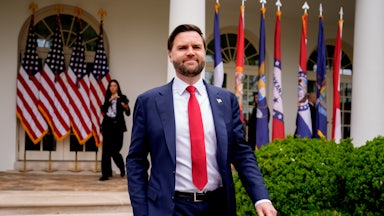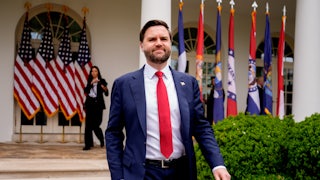For the second year in a row, Fortune’s annual survey of chief executives has designated Elon Musk—who is the richest person in the United States—the nation’s most overrated CEO. Kathaleen McCormick, the chancellor of Delaware’s Court of Chancery, appears to agree. Yesterday she voided Musk’s $55.8 billion pay package at Tesla, while calling into question the wisdom, independence, and honesty of Tesla’s board. This is an unexpected triumph for anyone who aspires to save capitalism from itself.
In its announcement, Fortune’s Sunny Magpol doesn’t even mention Twitter—or X, or whatever the hell you call it—to which Musk has been laying waste since October 2022. Presumably that’s because you can’t be called overrated when everybody already knows you’re screwing up. But here’s what Fortune has to say about Musk’s more important venture, Tesla:
The company has faced increased competition from cheaper Chinese EVs, and it predicted “notably slower” growth on its earnings call this month, even after cutting car prices multiple times. The revelation sent its stock plunging 25 percent since the start of the year, a wipeout that erased $82 billion in market value for Tesla.
Richard J. Tornetta, a former drummer with the heavy metal band Dawn of Correction who owned nine shares in Tesla, sued the company over Musk’s pay package, after it was granted back in 2018, alleging that Tesla’s board (of which Musk was chairman until the Securities and Exchange Commission, for unrelated reasons, made him quit) lacked independence from Musk. There was no particular reason to think Tornetta would win. These kinds of legal challenges, which turn on whether a board of directors breached its fiduciary duties to stockholders, seldom succeed. As McCormick noted in her decision, a chief executive’s pay package is “the quintessential business determination subject to great judicial deference,” especially after it’s been ratified by the shareholders.
Built into this presumption is a worldly understanding that board independence is kind of a joke in the U.S. Unlike boards of directors in Europe, board membership here is not time-limited. Consequently, the average length of a board term is nearly eight years. “Some board members have been on the board for over 20,” Debra McCormack, a corporate governance expert told Fortune’s Nick Rockel in October. In the United Kingdom, board members are legally required to undergo periodic peer review by third parties to verify their independence. No such requirement burdens boards of directors in the U.S.
Still, even by the lax standards that prevail in the U.S., the independence of Tesla’s board was a fiction. One member was Musk’s little brother Kimbal. Another was Antonio Gracias, chief executive of a private equity firm, who testified at the Delaware proceeding that he vacationed with Musk on multiple occasions, spent Christmas with Musk’s family, attended Musk’s second wedding, was a groomsman at Kimbal’s wedding, attended birthday parties for Elon, Kimbal, and their children, and so on. On one occasion Gracias lent Musk $1 million; when asked, he couldn’t recall whether Musk ever paid interest. A third board member, James Murdoch, took family vacations with Musk in Israel, Mexico, and the Bahamas; Kimbal and Gracias joined Elon and Murdoch on one of these.
The board secretary, Tesla General Counsel Todd Maron, who handled Musk’s divorce, wept tears of gratitude for Musk when he took the stand. Most damning, though, were Musk’s interactions with a board member named Ira Ehrenpreis, a venture capitalist. In advance of the 2018 pay agreement, Ehrenpreis sent Musk a private text asking how he’d like to structure his compensation. Musk replied by outlining a scheme that strongly resembled the final deal.
This exchange, which was referenced in a draft proxy statement but not in the final one made available to shareholders, contradicts Musk’s claim on the stand that he never discussed the matter with individual board members. “I do not have any understanding of the internal process by which this compensation structure was obtained,” Musk said. That wasn’t true. Musk’s, and the board’s, failure to be transparent about such matters with Tesla’s stockholders gave Judge McCormick the opening she needed to void Musk’s compensation package.
There’s some question whether the terms of Musk’s pay package, which conditioned payment of stock options on meeting a series of revenue targets, were as ambitious as they seemed initially. They certainly weren’t particularly ambitious at the time the stockholders approved the deal. We know that because a mere six days later, Tesla revealed to stockholders that the likelihood the targets would be met exceeded 70 percent.
But wait, you say: Ambitious or not, Musk met the targets. Doesn’t that count for something? Well, sure. If I bet you that next year I will write a book that spends 26 weeks on The New York Times bestseller list, and if I write that book, and if the book spends 26 weeks on the bestseller list, then you have to pay up, right?
But there are limits. If I bet you $100, or $1,000, or even $5,000, I might reasonably expect you not to welsh. But let’s suppose I bet you $1 million. And let’s further suppose, not unreasonably, that you would never agree to betting so much if I didn’t possess an unwholesome degree of leverage over you. Finally, let’s suppose that the full extent to which I exercised that leverage was unknown to your wife or husband, with whom you share all monetary assets. In that circumstance, you should not have to pay up.
Musk’s pay package wasn’t merely generous; it was, according to Judge McCormick, “the largest potential compensation plan in the history of public markets.” It was larger by a factor of 250 than “the contemporaneous median peer compensation plan” (already outrageously high) and larger by a factor of 33 than “the plan’s closest comparison, which was Musk’s prior compensation plan.” It was a ridiculous amount of money pledged to someone who already was absurdly rich and who, because of commitments to Space X, Neuralink, Boring Co., and now Twitter, was only a part-time employee.
Naturally, Musk thinks Tesla should pay him even more. At present he owns 13 percent of the company; he now says (amid those slower revenue growth projections) that he should own 25 percent. Should the board decide to give it to him, it will be difficult at this late hour for anyone to claim unawareness of Musk’s Svengali-like control over these people. It will demonstrate only the board’s desperate belief that despite the greed, despite the lies Musk spreads on Twitter, despite the ketamine, despite all the loopy stuff Musk says about colonizing Mars, and despite everything else, Elon Musk is God. The nation’s CEOs think the man is overrated? That’s the understatement of the decade. It’s like saying the Reverend Sun Myung Moon, who professed to be the messiah, was overrated. Of course he was. But he ran one hell of a racket.
